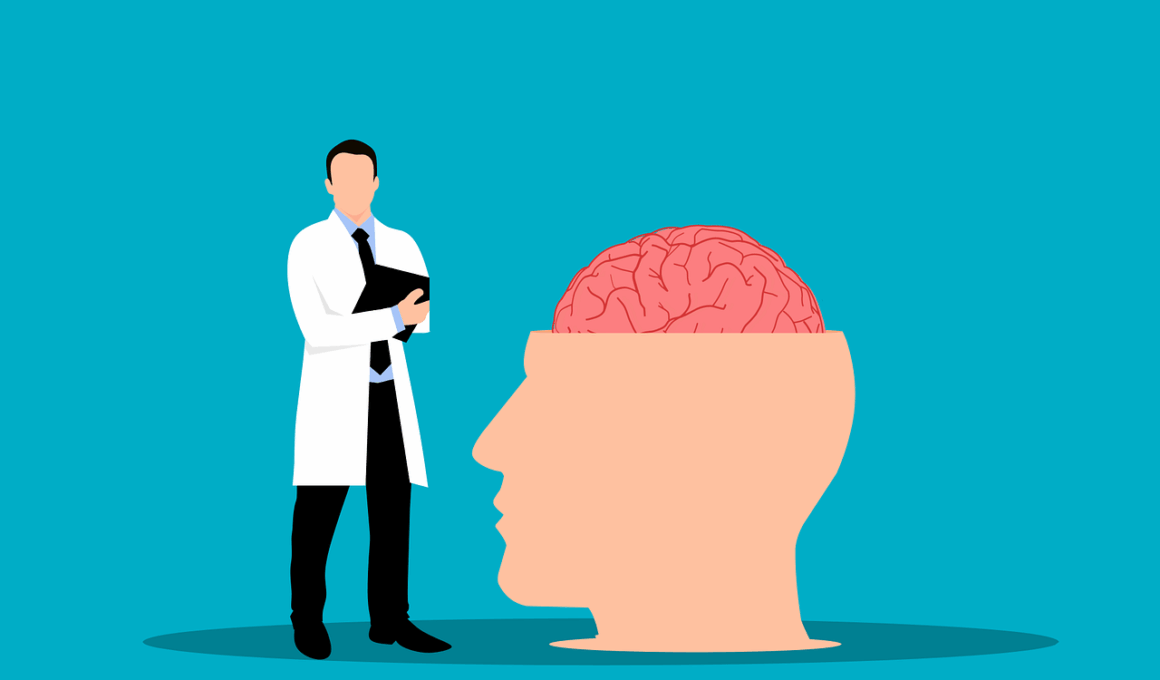Neurological Rescues: Treating Brain Injuries in Dogs
When it comes to neurological conditions in dogs, understanding the causes is essential for effective treatment. Neurological injuries can arise from a variety of sources, including trauma, infections, or congenital disorders. Symptoms such as seizures, coordination loss, or behavioral changes can indicate underlying neurological issues. In many cases, dogs may undergo extensive diagnostic testing, including MRIs or CT scans, to pinpoint the exact problem. Once diagnosed, a tailored treatment plan is critical. Treatment often encompasses medications, physical therapy, and sometimes surgical interventions. Each case will vary greatly depending on the injury’s nature and severity. Dog owners should remain informed about possible symptoms to pursue timely veterinary care. It’s not unusual for neurologically impaired dogs to require long-term rehabilitation, which can be both physically and emotionally demanding for the owner. Resources are available to support both the pet and the caregiver’s journey. Organizations specializing in canine neurological health continue to advocate for research and awareness, helping develop better treatment options and improving quality of life for affected dogs and their families.
One of the first signs of neurological distress in a dog is a change in behavior or mobility. Owners often notice their pets becoming disoriented or hesitant to move. In such scenarios, acting swiftly is essential. Veterinary professionals use a range of examinations, including neurological reflex tests and blood work, to ascertain the nature of a dog’s condition. Depending on the findings, various treatments may be prescribed. Medications designed to control inflammation, manage pain, or improve neurological function can help. Additionally, alternative therapies like acupuncture or chiropractic care may complement traditional treatments. Ensuring a dog receives adequate nutrition is also vital, as a balanced diet supports overall health and recovery. Pet owners might consider discussing dietary supplements with veterinarians to provide additional support. Another aspect of recovery involves physical rehabilitation tailored to the individual dog’s needs. Therapists often develop customized programs to enhance strength and mobility. Regular follow-ups with veterinary specialists can ensure progress is monitored effectively. Supporting a dog’s recovery also emphasizes routine, love, and patience throughout the healing journey.
Understanding Different Types of Brain Injuries
Brain injuries in dogs can vary significantly, affecting treatment approaches and outcomes. Traumatic brain injuries often occur from accidents, falls, or violence. Conversely, non-traumatic brain injuries may result from infections like meningitis or tumors. Recognizing these key distinctions is crucial for owners, especially when considering interventions. Symptoms can manifest differently based on the injury type; for instance, a dog with a traumatic injury may exhibit immediate signs such as loss of consciousness or severe agitation, while one with a tumor may show a gradual decline in function. Early intervention can make a significant difference in a dog’s recovery trajectory. Vets often advocate for immediate assessment following suspected injury incidents. Advanced imaging techniques can help evaluate the level of damage and guide treatment decisions. For non-traumatic injuries, comprehensive blood tests and spinal taps might be required to diagnose the underlying issues leading to neurological deficits. Proper diagnosis allows the veterinarian to provide a more specific treatment plan to aid recovery based on the unique circumstances surrounding each case.
Adopting a dog with a neurological condition can be a deeply rewarding experience. Many stories highlight remarkable transformations due to dedicated care, empathy, and innovative treatments. Organizations that focus on dog rescue, rehabilitation, and adoption often highlight these inspiring success tales. They aim to illustrate that dogs, even when facing significant challenges, can lead loving lives when provided the right environment. Various rescues collaborate with veterinary specialists, allowing them to develop programs designed for specific neurological issues. This collaboration has resulted in a growing understanding of effective treatments and long-term care strategies. Once rehabilitated, these dogs often convey immense gratitude toward their caregivers, showcasing resilience and spirit. Additionally, these transformative journeys encourage others to consider adopting dogs requiring extra support, fostering a compassionate attitude toward all animals. It is critical to remember that every dog is unique, and their treatments will vary accordingly. Emphasizing education, community involvement, and shared experiences creates a supportive network for affected families. As communities band together, it ultimately enhances the chances for dogs in need of neurological care to find loving homes.
Challenges in Treatment and Care
Challenges in providing care for dogs with neurological injuries can be numerous and varied. Owners often encounter emotional, physical, and financial hurdles throughout the pet’s treatment and recovery phases. For many pet families, pursuing advanced diagnostics can be cost-prohibitive. In such cases, some owners may have to weigh the extent of care against their budget constraints. Emotional resilience is also put to the test when a beloved pet struggles with significant health challenges. The decision-making process can become overwhelming amid uncertainty, compounded by the inevitable attachment to a pet’s wellbeing. Additionally, rehabilitation can require specialized equipment or modifications to living environments to ensure safety for recovering dogs. Some owners might need to learn new skills, such as administering medications or performing exercises. Incorporating physical therapy into a dog’s routine can be time-consuming, requiring diligence and commitment. The emotional bond shared between animals and caregivers often provides the fortitude necessary to overcome these challenges, facilitating a more fulfilling journey together. Many organizations also provide resources, online support groups, and virtual consultations to assist pet owners in navigating their caregiving journeys.
Progress monitoring is an essential element in the recovery process of dogs with brain injuries. Recognizing improvements or setbacks in a dog’s condition can guide owners in their treatment decisions. Regular veterinary appointments enable professionals to assess a dog’s recovery trajectory effectively. During these visits, changes in behavior, mobility, and overall health can be documented, ensuring that appropriate adjustments to the treatment plan are made as needed. A well-organized approach includes maintaining a daily log of the dog’s behavior, medications, and physical activities. This information can be invaluable for veterinarians, allowing for data-driven decisions. Positive milestones, no matter how small, should be celebrated to encourage continued progress. Each improvement strengthens the emotional bond between dogs and their owners even more. Engaging in support programs with other owners of dogs facing similar challenges fosters a sense of community. Many online forums and social media groups serve as platforms where experiences can be shared, providing encouragement and advice. Social connection can ease feelings of isolation, often accompanying the unique challenges of caring for dogs with neurological issues.
Hope Through Rehabilitation and Recovery
Despite the numerous challenges accompanying neurological care, stories of hope abound throughout the canine rescue community. Many dogs have not only recovered but went on to thrive, leading fulfilling lives after initial diagnoses. Rehabilitation programs that incorporate physical therapy, interactive exercises, and proper nutrition contribute significantly to successful outcomes. These programs often employ a variety of techniques, emphasizing the need for individualized approaches tailored to a dog’s specific limitations. Research studies have demonstrated that dogs receiving early intervention often have a better prognosis, highlighting the importance of recognizing symptoms early. Canine massage and hydrotherapy are additional avenues that many owners explore to assist recovery. Encouraging natural movement often enhances mobility and leads to improvements over time. Moreover, advancements in veterinary medicine and technology continue to develop new treatment modalities and rehabilitation strategies. Many organizations strive to raise awareness about recovery possibilities, empowering prospective adopters to consider dogs with neurological conditions. When families invest time and effort into caregiving, the outcomes can sometimes be extraordinary, resulting in lasting transformations that breathe joy and companionship into family lives.
Overall, understanding and addressing neurological issues in dogs opens up new horizons for their care and recovery. Every pet deserves love, a chance at healing, and the opportunity to lead their best lives. Education and advocacy play crucial roles in changing perceptions about dogs with neurological impairments. By sharing experiences and successful rehabilitation stories, communities can foster compassion toward these animals. Providers should advocate for early interventions, as swift veterinary responses can considerably influence outcomes. Physical and emotional support systems form integral parts of the recovery journey. Collaborations among veterinary clinics, rescue organizations, and pet owners can create effective networks to assist dogs facing neurological hurdles. Awareness campaigns can prepare future pet owners for the unique challenges and rewards relating to adopting dogs with specific needs. As more stories go public, the narrative shifts, encouraging people to embrace the beauty of every dog’s resilience. Recognition and support for neurological care in dogs can positively impact both individuals and communities. These efforts continually enhance the quality of care, ensuring that dogs with neurological conditions can find loving homes and hopeful futures.


